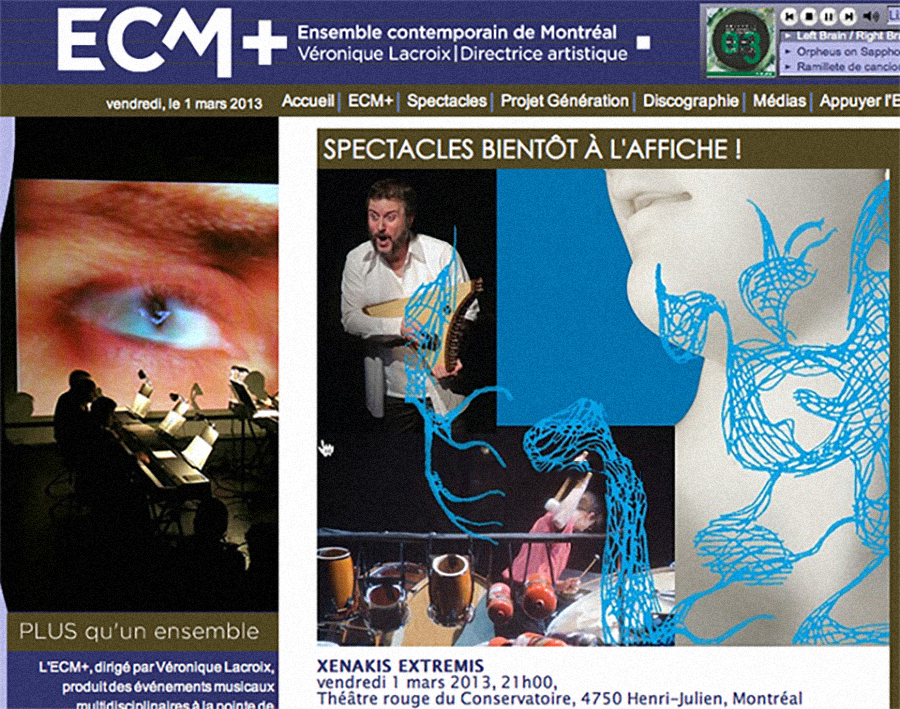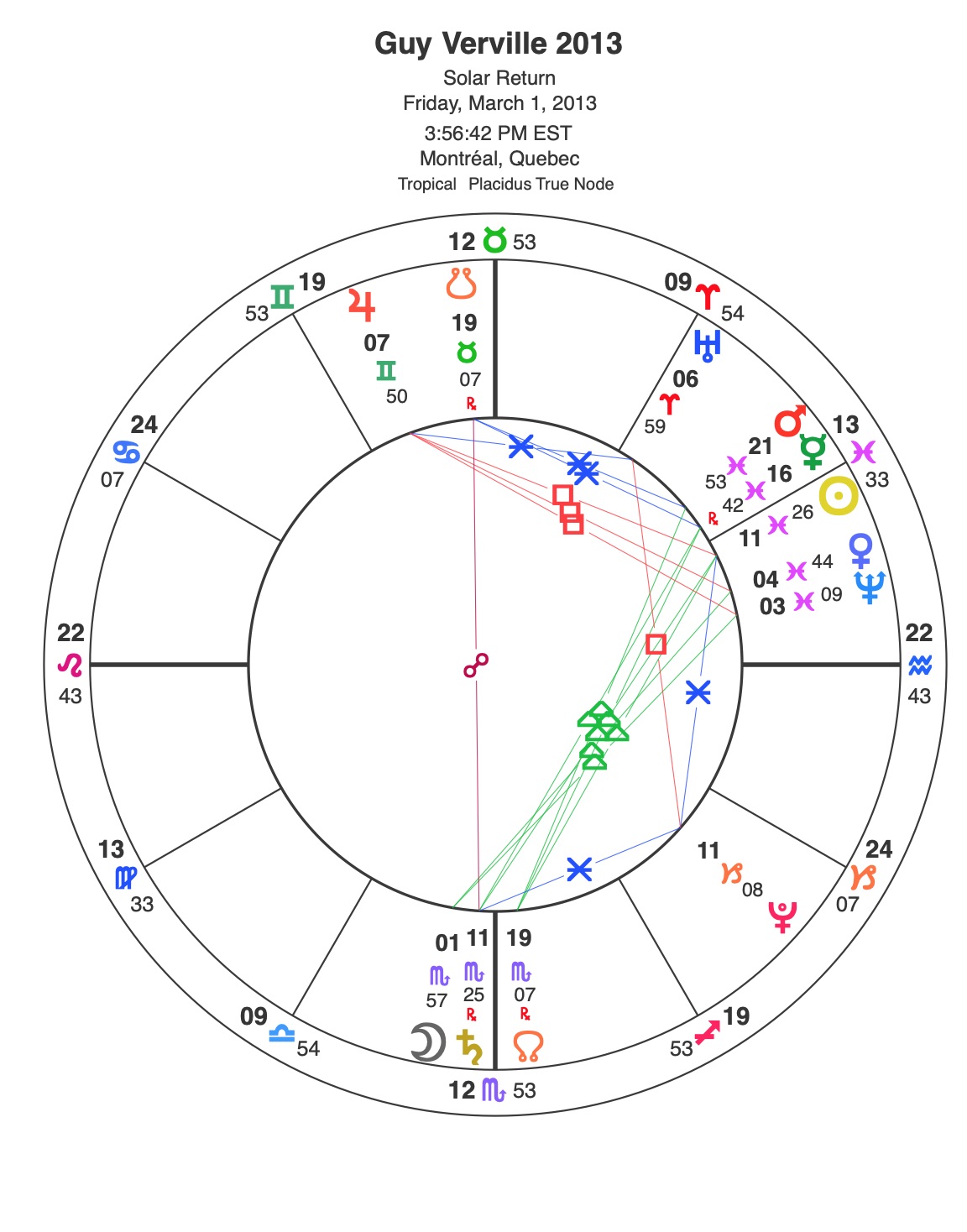
A concert said to be contemporary
Last Friday, I attended a concert where my teacher Vincent Ranallo "performed." The program revolved entirely around four works by Xenakis, and, for the conclusion, a composition by Quebec composer Gabriel Dufour-Laperrière, a concert organized by [ECM](https://ecm.qc.ca).
It’s been a long time since I’ve been "confronted" with contemporary music. I knew no more than that about the work of Xenakis, a leading figure in musical exploration in the middle of the 20th century.
If the percussion works impressed me, if Vincent’s vocal prowess made the spirit of a piece that escaped me (the whole paradox of contemporary works, I think), if the composition of the elegant Dufour-Laperrière (I know I’m superficial) was listenable, and if the audience BCBG-BOBO-hipsters shouted bravo while sitting well in their chairs, I left the musical experience, with a strange fatigue of the mind.
My teacher promised me a "wild" and original concert. From the outset, on the program, I was warned that there was no animality except in the cerebral expression of it and that Alice Ronfard signed a "put in space." Sometimes, if you don’t merely name things, or because you have to justify your fee, you say feline instead of yelling at the cat. A more significant concern for the sound balance would have been appreciated, because we sometimes lost Vincent’s vocal subtleties, in favor of an omnipresent percussion, beautiful indeed, but too noisy. The placement in space somewhat obscured the installation in sounds.
I don’t want to be harsh. I enjoyed my evening, but I think that Xenakis’ music has simply aged and Dufour-Laperrière’s work is in line with the bureaucratic and subsidized conceptualization of contemporary music that is meant to be exploratory, but that would stress any dairy cow that just wants to give its milk. We want to tell all these composers that we must move on to something else, come back to the real cry, not just try to paint it, to get out of the boxes of ruptures to communicate more with humanity.
It seems to me that the soul is not there. Perhaps I was too imbued with the animal and sound explorations of a Meredith Monk to appreciate the quantum research of musicians such as Xenakis, whose works, in the end, invariably brought me back to Chinese, Japanese, sprinkled with Greek and Balinese antiquity, a form of repetition, rereading, blah, blah, blah.
All of this made sense, we understand, all of it was professional and demanding. All this was "ringing." And who am I to speak like that? Nothing but nothing. And I probably don’t understand anything but nothing. Pop music is not better for me, it’s probably worse for my ears. More "simple," "zen" composers have appeared in the setting of contemporary music, Pärt, Lauridsen, Tavener, Glass, which seem to me to be more attached to the skin and rhythm of men. I like to listen to them again. It’s easier, probably...
If I smell the air of the times, I tell myself that spirits, but especially hearts, need direction, meaning, and philosophy. All this seemed to me to be missing during that evening, and it’s not bad either. I am an ignorant person, of course, and I will be told that one does not prevent the other, that there is room for everything.
Certainly.
I admire these people who gave this concert. They are passionate, whole, and convincing in this tiny niche. To know one, I know how deep this work requires, and the quality of their interpretation is undeniable.
I finally say a lot about the emptiness I feel. I guess my point has nothing to do with this concert after all.

